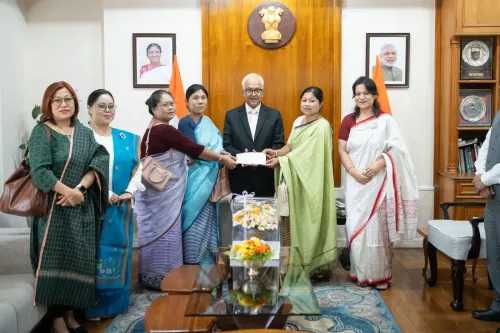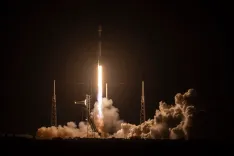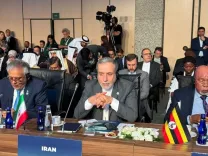What Did the Korean Envoy Say About India's Maritime Vision?

Synopsis
Key Takeaways
- India's maritime ambitions are gaining international recognition.
- Korean technological expertise can complement India's potential.
- Investment in shipbuilding and semiconductors is on the rise.
- Sustainability is a core focus of India's maritime strategy.
- India plans to become a hub for green shipping corridors.
New Delhi, Oct 28 (NationPress) The Ambassador of the Republic of Korea to India, Lee Seong-Ho, praised India’s expanding maritime aspirations and bilateral collaboration during the Indian Maritime Week on Tuesday, marking Korea's inaugural participation as a partner country.
In an interview with IANS, Ambassador Lee remarked, “The Indian Maritime Week is a tremendous success, showcasing India’s dedication and vision under Maritime Amrit Kaal 2047.” He emphasized that leveraging Korea’s technological prowess alongside India’s extensive potential could generate “remarkable synergy” within the sector.
Discussing the bilateral relationship, Lee noted that the India-Korea partnership has experienced exceptional growth, primarily driven by investments in the automotive and electronics industries. “We are now anticipating a second significant wave of investments, fueled by shipbuilding and semiconductors,” he expressed, conveying optimism for a “highly productive future” for both nations.
During the Green Maritime Day session, Union Minister for Ports, Shipping, and Waterways Sarbananda Sonowal underlined India’s steadfast commitment to establishing a sustainable and resilient maritime future.
“Green Maritime Day symbolizes our collective determination to create a cleaner and more sustainable future for global shipping,” stated Union Minister Sonowal.
He highlighted that India’s maritime sector is vital to its economy, with over 95 percent of the nation’s trade by volume conducted via the sea. Under the Net Zero by 2070 pledge, India aims to reduce carbon emissions per ton of cargo by 30 percent by 2030 and 70 percent by 2047, positioning the sector as a crucial driver of climate action.
Sonowal stressed that flagship initiatives such as the Sagarmala Programme, Maritime India Vision 2030, Harit Sagar Guidelines, and the Maritime Amrit Kaal Vision 2047 prioritize sustainability, innovation, and climate responsibility at the forefront of India’s maritime advancement.
“As we aim for Amrit Kaal 2047, our objective is not just to enhance maritime capacity but also to ensure it is greener, smarter, and more resilient,” he stated, adding, “With our unique positioning along significant global trade routes, India is set to emerge as a hub for green shipping corridors, linking domestic and international markets through clean energy trade.”









